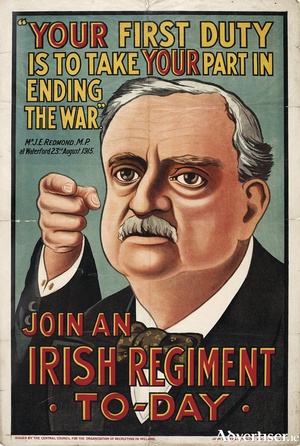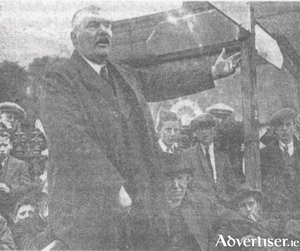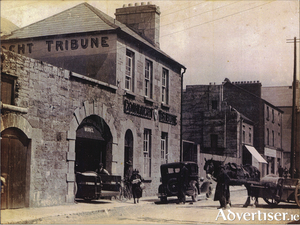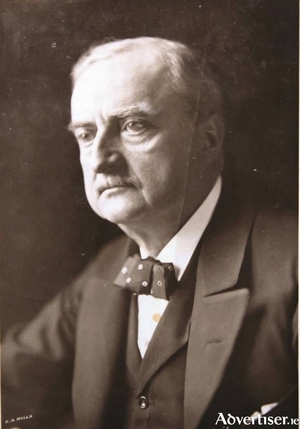Search Results for 'Irish Parliamentary Party'
25 results found.
A letter sent to GA Hayes-McCoy

One hundred years ago there were a series of truly terrible battles on the Western Front which were watched anxiously in Ireland as elsewhere. On June 7, near the Belgian village of Messines, the Allied army won a substantial victory. It gave hope, which turned out to be tragically false, that perhaps this was the beginning of the end of the war. With the capture of the Messines ridge, the Allies were confident they could clear a path all the way down to Passchendaele, and capture the Belgian coast up the Dutch border.
The Mayo member and the maid

John Deasy was on one of his regular trips to London. While carrying out his duties as the member of parliament for the constituency of Mayo West, Deasy was a frequent lodger at Mrs Postlethwaite’s boarding house at 75 Warwick Street, Pimlico, where he occupied a back room on the top floor. After a busy weekend, the tired 37-year-old MP returned to his room on the evening of Sunday, 4 June, 1893. One candle burned on the table by his bed, emitting limited light. It being a late hour, Deasy rang the service bell in order to request his supper. He walked on to the landing to meet his familiar servant girl, Ellen Lewis. Lewis was a girl of 16 years of age and by his own account, Deasy had always considered her a virtuous and modest girl. But, whether through boredom or through more corrupt thoughts, Lewis’ angelical qualities had not prevented the married Deasy from flirting with the young maid during previous stays.
The night Stephen Gwynn MP nearly lost his pants

The outbreak of World War I brought to a head the divided camps among Irish nationalists, both of whom wanted Home Rule, or Independence, but both saw different ways to achieve it. Probably because of the large army presence in the town, and the natural benefits that the army brought to traders, as well as the family connections that had developed over the years between town and soldiers, the majority of people in Galway town favoured the British military approach.
Local papers and their role in our history

In 1909 Galway was at a low ebb, the population was just over 3,000, the local economy was in poor shape, the canal and the docks were not being well used commercially, the student population of UCG was 131, there was very little manufacturing, and local politics was still bedevilled by the Parnell split. There were two local newspapers, The Connacht Champion which actively supported William Smith O’Brien MP and often virulently attacked the Irish Parliamentary Party, and The Galway Express which originally supported the conservative unionist viewpoint, but which gradually became more nationalist until its premises were wrecked in 1920 by the Black and Tans.
NUI Galway conference on Irish Parliamentary Party to commemorate the Decade of Centenaries

What was Home Rule? How did John Redmond’s Irish Parliamentary Party operate and how was it viewed throughout the country prior to 1916? How popular was Redmond’s decision to call on Irishmen to fight in World War I?

